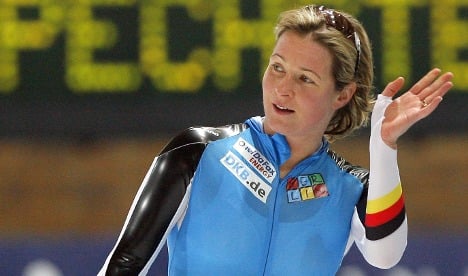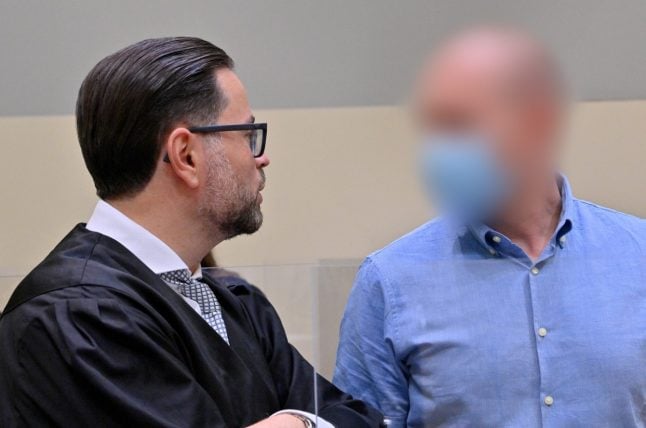The Lausanne-based CAS upheld a July 1 decision by the International Skating Union (ISU), which banned the 37-year-old for two years after tests showed she had an abnormal count of reticulocytes, or early-stage red blood cells. It did not, however, reveal any illicit doping substances.
Pechstein maintains that she never took performance-enhancing drugs and says she may have a genetic abnormality that caused the irregular blood count.
“Accepting this is unbelievably hard for me,” Pechstein said in a first reaction to the ruling that came after five months of deliberation. “How I could be banned, without proof, for something that remains scientifically controversial, will always remain incomprehensible for me.”
According to a court statement, Pechstein gave three blood samples during the World Speedskating Championships in Hamar, Norway in February 2009. These samples showed a reticulocyte percentage of 3.49, 3.54 and 3.38 – well above the 2.4 percent limit. Meanwhile another sample taken 10 days later showed a significantly lower percentage of 1.37.
This “sharp drop” could not be “reasonably explained by any congenital or subsequently developed abnormality,” the ruling said.
“The panel finds that they must, therefore, derive from the athlete’s illicit manipulation of her own blood, which remains the only reasonable alternative source of such abnormal values,” it concluded.
Dr. Wilhelm Schänzer, doping expert and head of the Institute for Biochemistry at the German Sport University Cologne, told The Local that there are two reasons that Pechstein could have exhibited elevated reticulocyte levels.
“Either the body has lost blood and is trying to regenerate or one has taken a foreign EPO substance into the body that has the same effect,” he said, referring to a popular doping hormone that helps the body produce red blood cells.
The ruling signals that doping agencies are beginning to take indirect signals of doping more seriously, Schänzer said.
“It’s certainly a critical parameter, and we believe that the World Anti-Doping Agency (WADA) will continue to increase the value of the these indirect signals that indicate doping,” he said.
But he also said that the CAS could have been more thorough in their examination of Pechstein’s appeal.
“I feel a bit uneasy because this decision hinges on one particular parameter, namely the reticulocytes,” he said.
While the court can certainly defend its decision to uphold the ISU’s testing methods to justify Pechstein’s ban, Schänzer said they would have done better to follow the WADA’s guidelines, which calculate reticulocyte results based on eight criteria instead.
“It would be very helpful if there had been further parameters that really could have supported doping evidence,” he said, adding that the single test was “associated with particular doubts.”
As for the possibility of Pechstein’s blood levels being associated with a genetic defect, Schänzer said it probably couldn’t be proven.
“This was put into the ring by Ms Pechstein’s consultant as a possibility, but it’s always difficult when one works with possibilities and not presenting clear facts that can be corroborated by particular tests,” he said.
The ban threatens to end the winter Olympian’s career, which has garnered five gold, two silver and two bronze medals.
“I’m no longer shocked about the ruling, but the way it occurred. First the ISU, then the CAS. I have to learn that for sports courts there is apparently no place for so frequently touted fair play,” she said.
Pechstein’s lawyer Simon Bergmann said he would appeal the case in the Swiss federal court in Lausanne as soon as possible, calling the CAS ruling a “black day for sporting justice.”



 Please whitelist us to continue reading.
Please whitelist us to continue reading.
Member comments